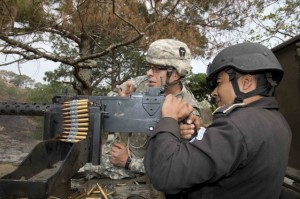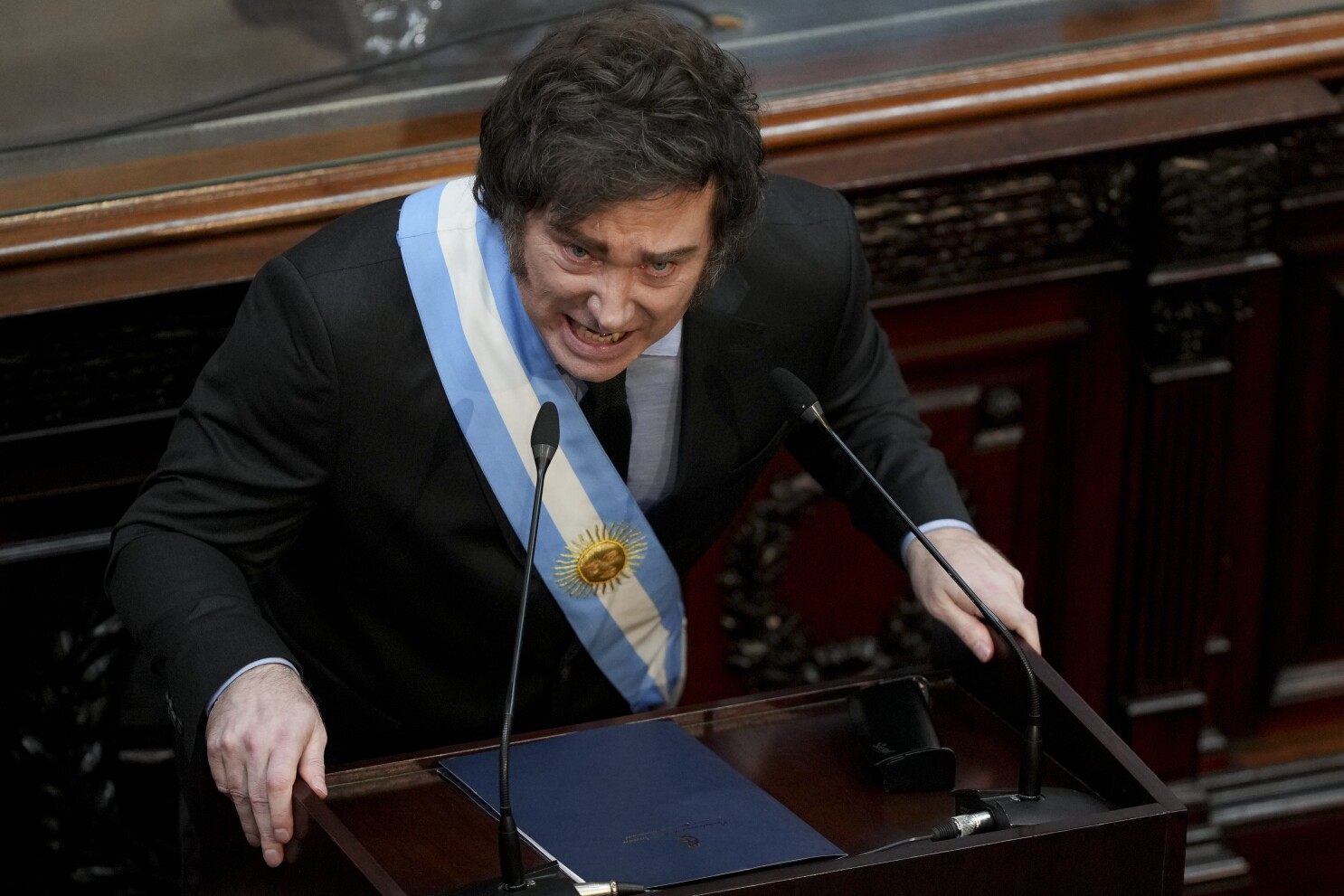“The war on drugs in Mexico, Honduras and Guatemala has become a war on women. Efforts to improve ‘security’ have only led to greater militarization, rampant corruption and abuse within police forces and erosion of rule of law. Ultimately, it has resulted in a crisis of insecurity where no one is safe.” Nobel Peace Laureates Jody Williams and Rigoberta Menchú[50]Alongside the sharp rise in violence and violations of human rights generally in Mexico and Central America, there has been nations an alarming increase in violence against women. We see an increase in femicides, attacks on women human rights defenders and rape and other forms of sexualized violence committed by state security forces and shadow powers such as organized crime, business interests, and private security forces throughout the countries.
Women’s and human rights organizations in Mexico, Guatemala and Honduras have reported a clear correlation between public expenditures U.S. foreign aid for security and counternarcotics programs, and violence against women.
In Mexico, during the Calderon administration (2006-2012), the U.S. government spent nearly $2 billion on equipping and training the Mexican Armed Forces and Police along with billions in Mexican security funding—both significant increases compared to past levels. During this period, women’s vulnerability and attacks increased rather than decreased—Ciudad Juarez is a vivid example. The border city already had been identified as the site of a series of unresolved murders of young women, many involving sexual violence. In 2007, 53 femicides were reported. One of the major military operations of the U.S.-backed war on drugs was launched in Ciudad Juarez in 2008. By 2010—the height of the military presence—that number had risen tenfold to 584.
In the wake of the 2009 coup in Honduras, there was a 62% increase in femicides. In Mexico overall, the number of femicides went up 68% between 2007 and 2009–the period during which the armed forces were deployed in many parts of the country to fight the drug war. In Guatemala, registered femicides went up from 213 in 2000 to 707 in 2012.[51]
“When countries are not experiencing active conflict, evidence shows that violence against women can be a primary indicator of a nation’s stability, security, and propensity toward internal or external conflict. This indicator may be as telling as levels of democracy or wealth.” U.S. National Action Plan[52]
Our research found that the governments of Mexico, Honduras and Guatemala have failed in their basic legal obligations to protect women. Although in many cases significant public resources and policy attention has been directed to the problem, factors including institutional weakness and corruption, lack of access to justice, and economic and security policies have not only blocked advances, but led to deterioration in women’s basic safety, access to justice, and full exercise of their rights. The governments of all three countries have been guilty by omission in guaranteeing basic safety, and oftentimes government officials and security forces are directly implicated in acts of violence against women, from discrimination and harassment to rape and assassination[53].
Women human rights defenders (WHRD) face specific risks. From 2010 to 2012, at least 38 women human right defenders were assassinated, with Mexico leading with 27, Honduras with 9 and Guatemala with 4. The Mesoamerican Women Human Rights Defenders Initiative registered 414 attacks against WHRD in 2012 alone—with Guatemala registering 126 attacks—noting that attacks are under-reported. Given the sense of general insecurity and impunity in the region, only 52.4% of WHRD who responded reported attacks to law enforcement authorities.[54].
A 2012 survey of women human rights defenders from Mexico, Honduras, Guatemala and El Salvador found that the majority who had received threats or attacks reported that the state itself was the suspected perpetrator. State actors accounted for 87% of the attacks committed against WHRD: municipal authorities (26.8%), state, departmental or provincial authorities (23.7%), police (14.5%), military (14.3%), and federal authorities (7%). This raises serious questions regarding the U.S. support to security forces and government institutions for rule of law that forms the backbone of U.S. security aid. The corruption, discrimination, disregard and complicity with organized crime found within the ranks of the police and armed forces in these countries heightens the dangers for women. With high desertion and corruption[55], military equipment and specialized training often passes into the hands of organized crime.
The result is the escalation of violence by powerful, armed men on both sides. In a machista society, where discrimination and misogyny continue to permeate all levels of society—both public and private—women are more vulnerable to all kinds of violence, from targeted retaliations to sex trafficking and domestic violence. Their bodies become part of the territory in dispute and the spoils of war. Examples include a Mexican drug kingpin supported by local police who kidnapped high school girls on a regular basis to rape and release; rapes and sexual abuse by the armed forces, cases of sexual torture and murder used to send warnings to rival drug cartels, and targeted threats and attacks on women human rights defenders and journalists who speak out about the violence in Mexico, Honduras and Guatemala.
Across the region, despite the fact that the majority of those murdered have been men—as is the case with most wars—women are the majority of those who denounce the murder and disappearances of loved ones. Women human rights defenders typically receive threats and even attacks as a result of their efforts in leading the search for disappeared family members, seeking justice for those assassinated and defending their communities from illegal land grabs and displacement.
Within the Movement for Peace with Justice and Dignity in Mexico, women make up some 70% of those pursuing the cases of disappeared loved ones within the Victims Platform. In Guatemala they are on the front lines leading indigenous communities fighting for the right to consultation (ILO Convention 169) and to block harmful mining projects and other large-scale development projects that would displace them from ancestral land and destroy their livelihoods and communities.
In Honduras, women lead the fight to rebuild democracy following the 2009 coup and to reverse the downward spiral into violence and lawlessness, which has given the nation the highest murder rate in the world. Under the umbrella of counternarcotics operations, the U.S.-supported response has resulted in outright occupation by military and civilian police and a newly formed military police force of whole communities and rural areas across the country, putting women at greater risk given impunity and weak accountability of the police and military. In both Honduras and Guatemala, indigenous and rural women defending the rights of their communities are threatened, killed and increasingly arrested and prosecuted as terrorists or threats to national security.
Across all areas of Mexico and Central America, women leaders become targets for repression as a result of their activism; they are intimidated to silence their voices and threatened—along with their families—so that they cease being activists or are forced into exile.
When violence is attacked with violence, women become both victims and defenders. They are disproportionately and differently affected by violence, violation of human rights and the erosion of community. Mesoamerican and the U.S. governments continue to respond by funding enforcement policies framed as counternarcotics or anti-terrorism that arm and train men to patrol and control the population.
These policies clearly put women at greater risk, while excluding them from participation in building peace through civic means. Approaches to public safety that direct efforts to root causes of poverty and emphasize community reconstruction, provide greater access to fair and efficient justice while eliminating discrimination, and favor women’s empowerment and are more likely to reduce criminal recruitment and create strong, lasting peace. As stated by the US National Action Plan on Women, Peace and Security, “the safety of women and their families must be a top priority for security efforts around the world.”
This text was written by Just Associates (JASS), a member of the Mesoamerican Working Group, and forms part of the November 2013 report Rethinking the Drug War in Central America and Mexico.




